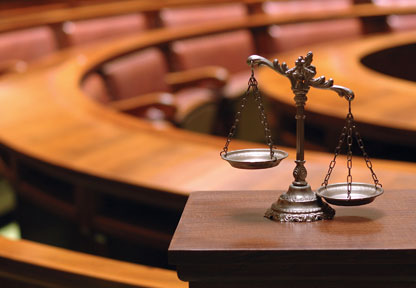Bankruptcy fraud as a crime
Bankruptcy fraud is a white-collar crime that takes four general forms. First, debtors conceal assets to avoid having to forfeit them. Second, individuals intentionally file false or incomplete forms. Third, individuals sometimes file multiple times using either false information or real information in several states. The fourth kind of bankruptcy fraud involves bribing a court-appointed trustee. Commonly, the criminal will couple one of these forms of fraud with another crime, such as identity theft, mortgage fraud, money laundering, and public corruption. Nearly 70% of all bankruptcy fraud involves the concealment of assets. Creditors can only liquidate those assets listed by the debtor; thus, if the debtor fails to reveal certain assets, the debtor can keep the assets despite having an outstanding debt. To further conceal the assets, businesses or individuals may transfer these unrevealed assets to friends, relatives, or an associate so that the asset cannot be located. This type of fraud raises the risk and costs associated with lending and become passed on to others who wish to borrow money. Petition mills are one type of bankruptcy fraud scheme on the rise in the United States. Petition mills purport to keep financially-strapped tenants from becoming evicted by passing themselves off as a consulting service. While the tenant believes to be receiving help in avoiding eviction, the petition mill actually files the tenant for bankruptcy and drags out the case. Meanwhile, the “service” charges exorbitant fees, empties the tenant’s savings account, and ruins the tenant’s credit score. Multiple filing frauds consist of filing for bankruptcy in multiple states, using the same name and information, using aliases and fake information, or some combination thereof. Multiple filings slow down the court systems’ ability to process a bankruptcy filing and liquidate the assets. Often, multiple filings provide more cover for a debtor trying to engage in the concealment of assets. A proceeding in which suspects are charged with bankruptcy fraud is criminal in nature. Federal prosecutors can bring charges for suspected bankruptcy fraud under 18 U.S.C. § 151. Proof of fraud requires showing that the defendant knowingly and fraudulently made a misrepresentation of material fact. Bankruptcy fraud carries a sentence of up to five years in prison, or a fine of up to $250,000, or both. See 18 U.S.C. § 152. When people or organizations have more debts than they can manage, they sometimes file for bankruptcy in a federal bankruptcy court. When you file for bankruptcy, your creditors can no longer on their own try to sue you or collect your property to satisfy unpaid debts. Instead, your creditors must go to the bankruptcy court in which you’ve filed your bankruptcy petition, where the judge will determine how much property you have, how much you owe, and who gets repaid. The process is designed to allow debtors a new start by getting out from under crushing debts. When someone who has filed for bankruptcy or any other person conceals assets, makes false statements under penalty of perjury (orally or in writing), files a false claim, destroys or conceals financial records relevant to the case, or gives or takes a bribe, that person has committed criminal bankruptcy fraud, a federal crime. Bankruptcy fraud can also be a civil wrong. The difference between criminal and civil fraud centers on the actor’s intent: Criminal fraud requires proving that the defendant acted with a knowing and fraudulent intent, while civil fraud involves less deception and cheating. Probably the most common form of criminal bankruptcy fraud occurs when someone filing for bankruptcy tries to hide or conceal assets, or otherwise tries to prevent the bankruptcy court from finding out exactly what the debtor owns. When you file for bankruptcy, the court will inventory all of your property and lump it together into what is called a bankruptcy estate. Court officials do this to determine how much you can pay to your creditors, or how much you can afford to pay them as part of a repayment plan. People will sometimes try to hide property from the court in an effort to prevent the court from using it to pay off the creditors, or try to hide how much they can afford to pay. Bankruptcy fraud can also occur when a debtor attempts to bribe a creditor. Creditors are not required to file a claim against the debtor after the debtor files for bankruptcy. The debtor might, for example, try to convince a creditor not to file a claim by offering a cash payment if the creditor agrees not to file a claim. You cannot accidentally commit bankruptcy fraud. If, for example, you accidentally forget to inform the bankruptcy court about the classic car your father gave you because he stored it in his garage and you never had physical possession, this isn’t bankruptcy fraud. Criminal fraud involves knowingly misleading the court, hiding assets, or taking actions you know are fraudulent. So, knowingly concealing the car by trying to hide it in your father’s garage would be bankruptcy fraud, whereas forgetting the car was given to you as a gift would not be. Another type of bankruptcy fraud preys on consumers who are facing eviction or foreclosure. The scam involves a company that charges consumers a fee to stop the foreclosure or eviction process. However, what these scammers typically do is, after they’ve been paid; file a bankruptcy case in the consumer’s name, often without notifying the consumer or even asking permission. Though this delays the foreclosure or eviction for a short time, it doesn’t stop it because as soon as the court learns that you weren’t a participant in the filing, it will dismiss the case. After that, the foreclosure will resume and the scammers will be nowhere to be found, having already left with the money.
Please visit our website for more information about us and bankruptcy. Call us today at (713) 974-1151 to schedule a no-obligation consultation or feel free to email us at [email protected]
[paypal-donation]













